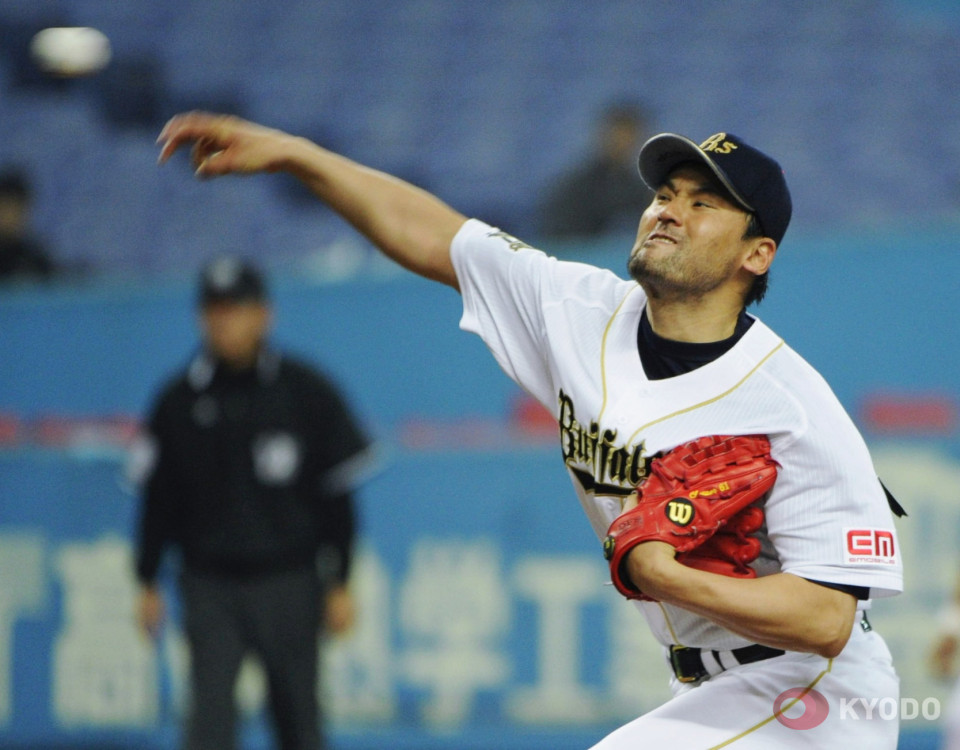Former pitching star Park Chan Ho, one of Japanese Baseball Hall of Famer Hideo Nomo's first MLB teammates, wants youngsters, especially in his native South Korea, to learn from Los Angeles Angels superstar Shohei Ohtani and Japan's approach to the sport.
Park, in Osaka as an analyst for WBC television broadcasts, gave his take on what makes Ohtani different and how his success is impacting young Asian baseball players.
"In playgrounds in Korea, and America as well, I talk with elementary school-age kids and little by little the talk turns to Ohtani," Park said Monday through an interpreter at Kyocera Dome Osaka.

"I talk about how Ohtani keeps getting mentally stronger, mentally bigger. Even now, I'm still watching all the MLB players and see their skills, but what sets Ohtani apart is his mental strength. Especially with Korean kids, I talk about Ohtani's individual character.
"It takes great effort (to be like him), because becoming a great person is really hard," he said.
Park won 124 games in MLB, playing for a number of teams from 1994 to 2010. In that time, he came into close contact with a number of Japanese players including Nomo and two other pitchers, Hiroki Kuroda and Masato Yoshii.
From them, Park came away with the belief that Japanese baseball's obsession with good manners and respect was the bedrock of their success. He spent his penultimate season in Japan with the Orix Buffaloes before wrapping up his career in South Korea in 2012.

"I got most of my impressions about Japanese baseball in 2011 with Orix. Perhaps what touched me the most was the way all the players doff their caps when they enter and leave the field. I tell Korean children about that," Park said.
"It seems that is the kind of etiquette that supports the person Ohtani has become. He's the kind of guy who will stop to pick up someone else's tissue off the ground, who'll pick up garbage. I tell kids that those lessons Ohtani learned from his parents have enriched his life."
Park did not dismiss the amount of physical and athletic talent Ohtani possesses and said he was astonished by the two-way star's progress as a hitter.

"Because I was a pitcher, I've had a thorough fascination with his pitching, and I never ever thought he'd achieve the numbers he has as a hitter. He has a genius for that as well," Park said.
That genius, Park said, is now helping to free young Asian ballplayers from the constraints that had been imposed on them.
"I myself hit three home runs in MLB," Park said. "A lot of kids are really good at both batting and pitching, and I was, too."
"But until recently, when someone joined their first amateur team, they basically have had to choose one or the other, focus on pitching or focus on batting. As a result, those who could be really good at both have ended up losing either their hitting or pitching skill."
"Because of Ohtani, amateurs throughout Asia are trying hard to do both if they can. Now we have some great young players in Korea who are aspiring to be like Ohtani. I'm really looking forward to that."
Related coverage:
Baseball: Shohei Ohtani, Lars Nootbaar spark Japan in WBC warm-up win
Baseball: WBC can open or shut MLB door for 3 Japanese players
Baseball: Red Sox's Yoshida completes Samurai Japan WBC team

 By Jim Allen,
By Jim Allen,








